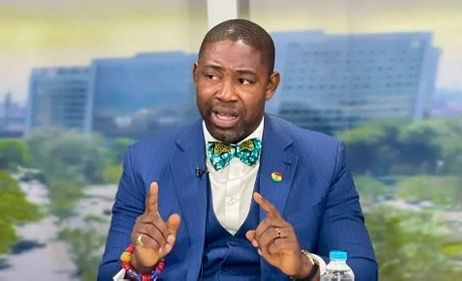Bernard Okoe Boye, a former Member of Parliament for Ledzokuku, has leveled accusations against the National Democratic Congress (NDC) government, claiming they are misusing state institutions to target political adversaries instead of prioritizing the well-being of Ghanaian citizens. He argues that while members of the New Patriotic Party (NPP) face unwarranted arrests, individuals affiliated with the ruling NDC are often granted impunity, even in cases of grave offenses. Dr. Okoe Boye contends that the NDC’s mandate is to focus on job creation, healthcare improvement, and environmental protection, not to suppress dissenting voices. This critique underscores a fundamental concern about the potential erosion of democratic principles and the rule of law when state power is perceived as being wielded selectively against political opponents.
Addressing the NPP’s “Yɛn Suro Ahunahuna” (We Fear No Intimidation) protest in Accra, Dr. Okoe Boye, who also served as a former Health Minister, emphasized the government’s responsibility to prioritize development and abandon politically motivated persecution. He argued that the electorate’s mandate to the NDC was focused on tangible improvements in the lives of Ghanaians, such as better conditions for teachers, increased hospital capacity, and environmental cleanup, not on pursuing political vendettas. This argument highlights the disconnect between the perceived priorities of the government and the expectations of the citizens who entrusted them with power.
Dr. Okoe Boye’s assertion that the NDC is prioritizing political witch-hunts over its core responsibilities raises concerns about the potential diversion of resources and energy from critical areas of governance. If state institutions are indeed being used to target political opponents, this could undermine public trust in these institutions and erode their effectiveness in serving the broader population. Furthermore, such actions could create a chilling effect on political discourse, discouraging dissent and limiting the space for open and robust debate, which are essential components of a healthy democracy.
The accusation of selective enforcement of the law, with NPP members facing disproportionate scrutiny while NDC affiliates enjoy impunity, strikes at the heart of the principle of equality before the law. This principle, a cornerstone of any just legal system, demands that all individuals, regardless of their political affiliations, be subject to the same laws and treated equally under the law. If this principle is compromised, it creates a two-tiered system of justice, where those in power enjoy preferential treatment, while others are unfairly targeted. Such a system breeds resentment, undermines the rule of law, and can ultimately destabilize the political landscape.
Dr. Okoe Boye’s warning to the police to resist political influence underscores the vital role of law enforcement agencies in upholding the rule of law and maintaining public order. The credibility and effectiveness of the police depend on their impartiality and their commitment to enforcing the law without fear or favor. If the police are perceived as being tools of the ruling party, used to harass and intimidate political opponents, public trust in law enforcement will inevitably erode. This can lead to a breakdown in law and order and create an environment of fear and insecurity for all citizens.
In a functioning democracy, the police force must be independent of political influence and accountable to the law. Their role is to protect all citizens equally, regardless of their political affiliations, and to uphold the rule of law without bias. When the police are perceived as being politicized, their ability to effectively perform their duties is compromised, and public confidence in their impartiality diminishes. This can have serious consequences for the stability and security of the nation. Dr. Okoe Boye’s call for police professionalism and impartiality is therefore a crucial reminder of the importance of an independent and accountable police force in a democratic society.














